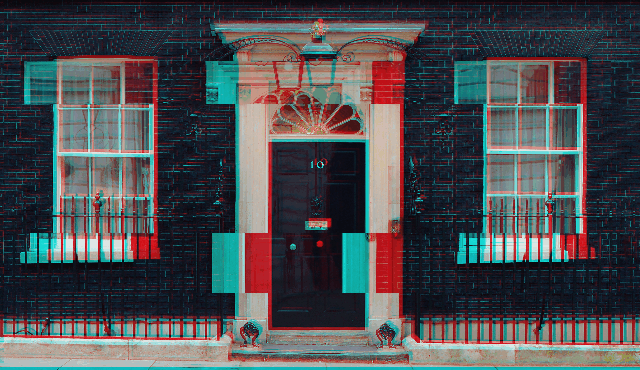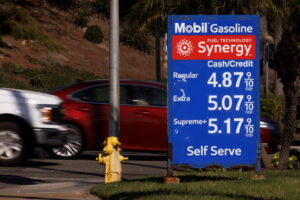Illustration by Zeyd Anwar / Sergeant Tom Robinson RLC/MOD / Wikipedia
For law, politics or philosophy students who have encountered political theory, Susskind’s work particularly hits a chord. He asks, and more importantly, answers the questions that we all have while reading Hobbes, Rawls or Kant: how do their ideas fit in our current digital age? Not only is he forward-thinking, he dares to be imaginative and bold in his arguments of how political theory needs to change and look to remain relevant and valuable for governance. Importantly, he never fails to be consistently insightful and make profound comments backed up by an abundance of research. This means that as a reader you aren’t just reading the works of Susskind, but indirectly a wealth of academics and authors who are important contributors to the discussion. Ultimately, he champions the recognition of the digital as political.
He structures his argument to consider the future of power, democracy, justice and even politics in turn in light of the exponentially increasing and ever-present digital revolution. His methodology is as follows: first he makes valuable predictions about the future of each landscape and then applies existing political theory to them. This allows him to flag up the inadequacies of centuries-old thought to a tee. But first he establishes the trajectory of technology and, broadly, digital systems: arguing they are increasingly integrated in the physical offline world around us, increasingly quantified and increasingly capable. Crucially, the division between “online” and “offline” will become even more arbitrary and questionable — if not entirely antiquated.
For instance, as Yochai Benkler argues in TheWealth of Networks (2006) and The Penguin and the Leviathan (2011),“it’s not that human nature has changed in the last twenty years to make us more cooperative. Rather, it’s that this scale of cooperative behaviour would have been impossible in the past. Connective technology has made it possible.” For those who are seasoned readers of similar futuristic genres, much of the initial few chapters are familiar territory. Susskind really finds his feet and niche in tackling the future of power and democracy in code — building on the seminal work of visionary Lawrence Lessig.
But Susskind goes further — “to say that code is law, or even like law, is no longer enough. Code can also be used to influence and manipulate people in ways that don’t resemble the workings of the law. A more helpful formulation than code is law is that code is power: it can get us to do things we wouldn’t otherwise do by means of force, coercion, influence, and manipulation. And it can do so in a stable and wide-ranging way. That’s why code will play such a crucial part in the future of politics.“
On Power
First, the ability for smart enforcement mechanisms and certain routes of action already blocked or made accessible means human choice will be encroached upon to the extent we will no longer have the choice to disobey. Like being unable to unlock a certain character in a video game without obtaining X rewards, we will increasingly face a similar type of tangible block or obstacle in consuming goods and services in the “real” world as technology becomes more integrated. This could mean that self-enforcing laws cannot be broken because they are encoded, making law resemble “a locked door rather than a command not to enter“. Ironically, it will be the new”code-ification of law”.
Second, the incremental gathering of data constitutes power in two ways: it is useful in an instrumental way of deploying power (in the way that knowledge is not itself power, but is conducive to it); and, it can make people do things otherwise per se (in the disciplinary sense).
Third, “filtering is an incredibly powerful means of perception-control. If you control the flow of information in a society, you can influence its shared sense of right and wrong, fair and unfair, clean and unclean, seemly and unseemly, real and fake, true and false, known and unknown. You can tell people what’s out there, what matters, and what they should think and feel about it. You can signal how they ought to judge the conduct of others.” In addition, Susskind argues we’ll grow increasingly subject to anew set of norms: technogenic norms and customs that nudge us to perform in a certain way (which we are already complicit in doing).
On Liberty
In advancing his argument, Susskind analyses the impact on three elements of liberty: freedom of action, freedom of thought, and a republican conception of freedom of community where being free means being an active member of the community. While certain technologies may contravene X or Y, there is an arguable case to be made in favour of technologies aiding one’s ability to be an active member of the community and thus be more free (e.g.digital enhancement). Ultimately, he points to the likelihood for states to co-opt technologies to become a “supercharged state”.
On Democracy
Deliberative, Direct, Wiki, Data and AI: the five types or sketches of democracy that need to be re-examined. With the increased “colonisation” of online discourse by bots and trolls, deliberation’s automation brings into question its legitimacy and space in the public sphere. Do we, and should we, now value deliberation the same way Aristotle or Plato once did? Equally relevant, Susskind asks what are the implications of delegating authority (e.g. to vote) to automated systems in specialist areas of knowledge like taxation, consumer welfare, environmental policy and financial regulation – even if they can procure better outcomes?
On Justice
Production will depend less on physical assets and more on tangible ones like intellectual property, organisational capital and user-generated content (including YouTube videos, Facebook photos, and online ratings). This means inequality between labourers and capital-owners will grow over time, despite the changing nature of capital. Soon, our conceptions of justice will make their way into code and touch every aspect of our lives.
More than the sum of his different sections is the overall value detailed between the chapters. He peddles legal complexity and political theory with accessibility, flair and wit. One can’t help but finish Susskind’s piece with a sense of intrigue, enlightenment and most of all hope and vision for the future.


